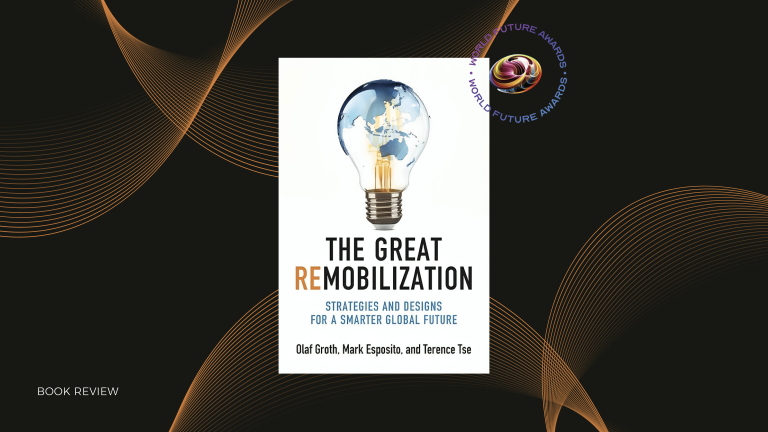
Navigating the AI Frontier: Illuminating Insights on AI’s Impact in Financial Services
The following article by The European Financial Review is an insightful piece that illuminates the diverse effects of AI in the financial sector. It offers important perspectives on the opportunities and obstacles linked to AI adoption, highlighting the necessity for ethical considerations, strong data privacy protocols, and workforce adaptation strategies. As financial organizations increasingly adopt AI, maintaining transparency, fairness, and integrity will be essential in guiding this transformative process.
Artificial Intelligence (AI) stands out as a transformative force when it comes to Finance, revolutionizing traditional practices and driving innovation. Its integration into the financial services sector promises unprecedented efficiency, enhanced customer experiences, and robust risk management. However, as financial institutions embrace AI, thought-provoking insights emerge, shedding light on its multifaceted impacts and implications.
Risk Management: AI’s Predictive Prowess
With risk management, AI emerges as a game-changer, offering predictive insights and foresight capabilities by traditional methods. Through advanced algorithms and machine learning techniques, financial institutions can analyze vast datasets in real time, identifying patterns and anomalies with precision. This predictive prowess enables proactive risk mitigation strategies, enhancing resilience against market volatility and regulatory scrutiny.
Customer Engagement: Personalization and Relationship Building
AI’s integration empowers financial firms to deliver personalized experiences tailored to the unique needs and preferences of individual clients. Through advanced analytics and machine learning algorithms, institutions can offer customized recommendations, intuitive chatbots, and algorithmic trading platforms. These innovations not only streamline operations but also foster deeper client relationships, cultivating loyalty and trust.
Ethical Considerations: Transparency and Accountability
Despite its transformative potential, AI raises ethical considerations regarding transparency, bias, and accountability. The opacity of AI algorithms poses challenges in ensuring transparency and understanding the decision-making process. Moreover, biased algorithms risk perpetuating discriminatory practices, exacerbating social inequalities. As financial institutions deploy AI, it becomes imperative to establish robust governance frameworks that ensure ethical AI deployment and uphold principles of fairness and integrity.
Data Privacy and Cybersecurity: Safeguarding Sensitive Information
With access to vast troves of sensitive financial data, AI systems become prime targets for cyber-attacks and data breaches. The proliferation of AI exacerbates concerns surrounding data privacy and cybersecurity, threatening financial stability and eroding consumer trust. To mitigate these risks, financial institutions must implement stringent measures to safeguard data privacy and fortify cybersecurity defenses.
Workforce Transformation: Reskilling and Upskilling Initiatives
While AI-driven automation streamlines operations and augments productivity, it also prompts structural shifts within the workforce. Certain roles may become obsolete, necessitating reskilling and upskilling initiatives to equip employees with the requisite technical competencies. Moreover, AI fosters a culture of continuous learning and adaptability, prompting organizations to embrace workforce transformation initiatives.
Regulatory Challenges: Balancing Innovation and Compliance
The dynamic nature of AI poses challenges for policymakers and regulators, necessitating agile responses to balance innovation with risk mitigation. As financial institutions leverage AI to enhance operational efficiency and drive business growth, regulators must devise mechanisms to ensure compliance and mitigate systemic risks. Establishing clear regulatory frameworks is essential to foster responsible AI adoption and safeguard consumer interests.
Fostering Responsible AI Adoption
The integration of AI into the financial services sector holds immense promise for driving innovation and transformation. From risk management to customer engagement, AI empowers financial institutions to unlock new opportunities and deliver superior experiences. However, amidst the promises of technological advancement, it is crucial to address ethical, regulatory, and societal implications. By fostering responsible AI adoption and upholding principles of transparency, fairness, and integrity, we can navigate the AI frontier toward a future where innovation and ethics converge harmoniously.
Please read more details at: https://www.europeanfinancialreview.com/navigating-the-ai-frontier-illuminating-insights-on-ais-impact-in-financial-services/
MORE NEWS

World Future Awards Celebrates the Top 100 AI Tech Companies of 2025

Speexx: A Global Pioneer in AI-Powered People Development

Speexx Named One of the Top 100 AI Tech Companies by World Future Awards 2025

Lydia Teryoshina Appointed to World Future Awards Board of Experts

Building Experiences, Not Just Products: The Future of Tech

🌐 World Future Awards Honors the Best Fashion Tech Companies in the World 2025

Book Review: The Great Remobilization: Strategies and Designs for a Smarter Global Future, by Mark Esposito
NEWSLETTER
Sign up to learn more about our project and to stay up to date.

